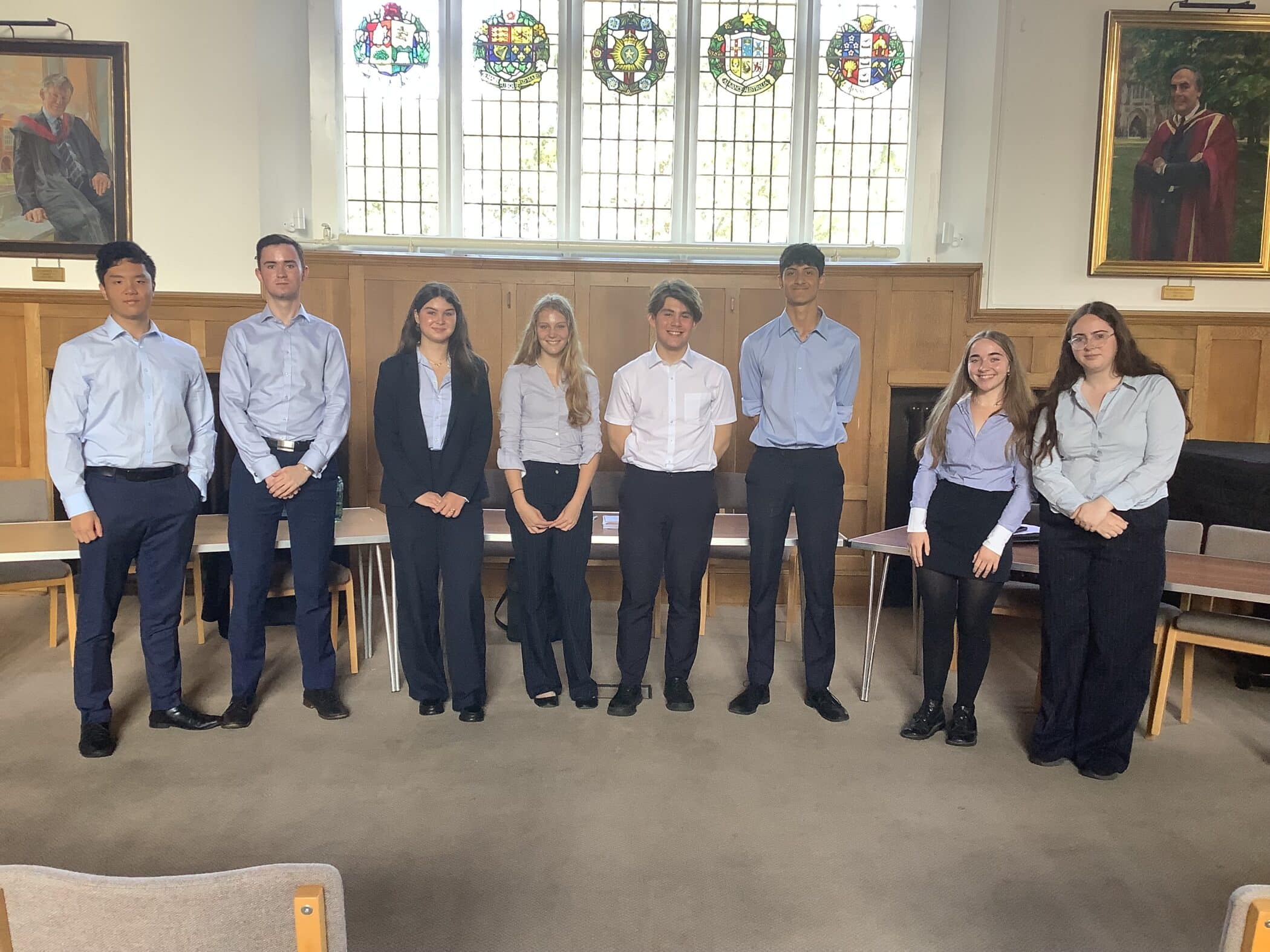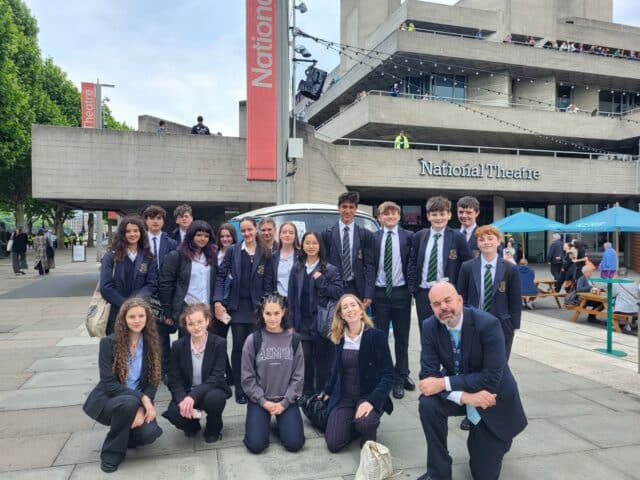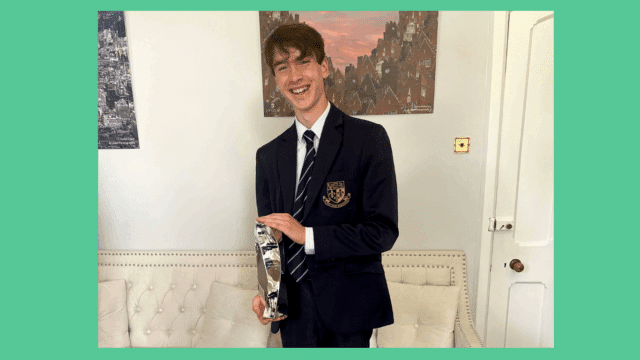In honour of Old Epsomian John Darbyshire, the Inter House Darbyshire Debating Competition is a highlight in the Summer Term’s busy calendar. Already undertaken by Upper Fourth in the first half of term, it has since been the Lower Sixth’s turn to showcase their intellectual might.
The competition began with four concurrent heats and Houses debated a range of topics: whether gentrification allows communities to thrive, whether advertising that targets children should be banned, whether funding the arts is more important than funding the military and whether the funding of libraries ought to be ringfenced.
Eight Houses progressed to the semi-finals, with both taking place concurrently, it was again a brilliant morning of slick and combative debates that excited their respective audiences. One semi-final, which considered whether past colonial empires should pay reparations to their former colonies, pitted Carr and Robinson against Propert and White. White were the clear winners through their thorough and convincing opposing argument, alongside effective rebuttals, however, Carr came a close second, with an effective delivery from both speakers and a similarly detailed proposing argument.
The other semi-final saw Forest and Granville up against Raven and Wilson. This was a closer contest, with Granville and Raven narrowly outshining the other two Houses. As with the heats, the main differentiator was their ability to clash with their opponents’ arguments, through interrogative points of information. Nonetheless, all participating speakers performed well in an academic pursuit that will have been an undoubtedly enriching experience.
With two weeks to prepare and an additional minute to speak, the final was set to be another impressive round. Mr Russell, Assistant Head: Sixth Form, had the unenviable task of judging this final debate on a highly topical motion: ‘This house believes that art and music produced by artificial intelligence is a genuine threat to real artists.’ Proposing the motion were Daniel Robertshaw and Sam Han representing Carr, alongside Ella Stephens and Gracie Lappin representing Raven. Opposing the motion were Faris Jafar and Selim Ardaç representing Granville, alongside Antonia Howard and Lily Graves representing White.
The proposition – Carr and Raven – put forward a compelling argument, positing that artificial intelligence has the power to endanger originality, with its capacity to scan and replicate, and that it lacks the emotional depth that makes the work produced by real artists so powerful. They suggested that it may benefit large corporations with deep pockets, but it will fundamentally impede the livelihoods of many creative visionaries.
Meanwhile, the opposition – Granville and White – argued that artificial intelligence is a tool that can be harnessed by artists to express their skill, vision and imagination. They cited the fact that artificial intelligence has been hailed as one of the technologies of the future; it is not to be feared and eschewed, but manipulated to create new mediums that enrich creative industries.
All four Houses demonstrated an impressive understanding of the topic and had undertaken detailed research to support their arguments with apt examples. Deciding the winner came down to choosing the most persuasive pair, and the accolade was awarded to Granville’s Faris Jafar and Selim Ardaç.





